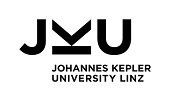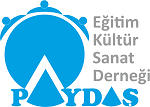 Hacettepe University (HU) which is a public university was founded in 1954. It has 14 Faculties, 14 Graduate Schools, 2 applied schools, 1 conservatory, 6 vocational schools, and 90 research centers. Total number of students is 36112 and academicians are 3495. Department of Computer Education and Instructional Technologies (CEIT) was established in 1998 under the Faculty of Education. Beside undergraduate education, CEIT has M.Sc. and Ph.D graduate programs. Department has 311 undergraduate students, 80 graduate students, and 27 academicians. The department aims to train students (prospective teachers) who would teach information technology-related courses in K-12 institutions. It also aims to do scientific research on the use of information and communication technologies in teaching-learning situations, development, integration and diffusion of those technologies in educational settings and distance learning, developing educational products, and training human resources needed in the field.
Hacettepe University (HU) which is a public university was founded in 1954. It has 14 Faculties, 14 Graduate Schools, 2 applied schools, 1 conservatory, 6 vocational schools, and 90 research centers. Total number of students is 36112 and academicians are 3495. Department of Computer Education and Instructional Technologies (CEIT) was established in 1998 under the Faculty of Education. Beside undergraduate education, CEIT has M.Sc. and Ph.D graduate programs. Department has 311 undergraduate students, 80 graduate students, and 27 academicians. The department aims to train students (prospective teachers) who would teach information technology-related courses in K-12 institutions. It also aims to do scientific research on the use of information and communication technologies in teaching-learning situations, development, integration and diffusion of those technologies in educational settings and distance learning, developing educational products, and training human resources needed in the field.
 The Johannes Kepler University Linz (JKU), founded in 1966, is one of Austria’s youngest universities and comprises four faculties (Law; Social Sciences, Economics and Business; Engineering and Natural Sciences, Medicine). Approximately 16000 students attend JKU, and the university is the employer of more than 2000 people. In addition to traditional institutes, the university has seen an increasing number of institutes funded by third parties and, more recently, the introduction of competence centers which are privately owned companies and other organizations that reflect the important role JKU plays within the economy of Upper Austria.The Department of Mathematics Education (http://www.jku.at/idm), chaired by Prof. Markus Hohenwarter, is integrated into the Faculty of Engineering and Natural Sciences, and is one of ten mathematics departments at the Johannes Kepler University Linz. The Faculty offers programs for students of (applied) mathematics as well as for students of mathematics education, the latter of which are catered for by the staff of the Department of Mathematics Education. The department offers all relevant courses on mathematics education for students enrolled in the program for secondary school teachers of mathematics including courses on the use of ICT for learning and teaching as well as the creation of interactive educational materials. Furthermore, the Department of Mathematics Education has a long tradition of close collaboration with experienced classroom teachers who are both involved in teaching courses for pre-service teachers as well as active members of research projects.
The Johannes Kepler University Linz (JKU), founded in 1966, is one of Austria’s youngest universities and comprises four faculties (Law; Social Sciences, Economics and Business; Engineering and Natural Sciences, Medicine). Approximately 16000 students attend JKU, and the university is the employer of more than 2000 people. In addition to traditional institutes, the university has seen an increasing number of institutes funded by third parties and, more recently, the introduction of competence centers which are privately owned companies and other organizations that reflect the important role JKU plays within the economy of Upper Austria.The Department of Mathematics Education (http://www.jku.at/idm), chaired by Prof. Markus Hohenwarter, is integrated into the Faculty of Engineering and Natural Sciences, and is one of ten mathematics departments at the Johannes Kepler University Linz. The Faculty offers programs for students of (applied) mathematics as well as for students of mathematics education, the latter of which are catered for by the staff of the Department of Mathematics Education. The department offers all relevant courses on mathematics education for students enrolled in the program for secondary school teachers of mathematics including courses on the use of ICT for learning and teaching as well as the creation of interactive educational materials. Furthermore, the Department of Mathematics Education has a long tradition of close collaboration with experienced classroom teachers who are both involved in teaching courses for pre-service teachers as well as active members of research projects.
 Asociatia Institutul GeoGebra Botosani (AIGB) is an association related to International GeoGebra Institute (IGI). The members of AGIB are mainly math teachers and researchers who are interested in GeoGebra. AIGB has three goals as training and support, development and sharing, research and collaboration. Training and Support: To coordinate and provide professional development opportunities and support for both pre-service and in-service teachers. Development and Sharing: To develop and share workshop resources and classroom materials, and to continually improve and extend the dynamic mathematics software GeoGebra. Research and Collaboration: To conduct and support GeoGebra-related research which focuses on the teaching and learning of mathematics in order to inform and improve training and development activities, and to promote collaboration between IGI and local GeoGebra Institutes and between international colleagues.
Asociatia Institutul GeoGebra Botosani (AIGB) is an association related to International GeoGebra Institute (IGI). The members of AGIB are mainly math teachers and researchers who are interested in GeoGebra. AIGB has three goals as training and support, development and sharing, research and collaboration. Training and Support: To coordinate and provide professional development opportunities and support for both pre-service and in-service teachers. Development and Sharing: To develop and share workshop resources and classroom materials, and to continually improve and extend the dynamic mathematics software GeoGebra. Research and Collaboration: To conduct and support GeoGebra-related research which focuses on the teaching and learning of mathematics in order to inform and improve training and development activities, and to promote collaboration between IGI and local GeoGebra Institutes and between international colleagues.
 Paydaş Education, Culture and Art Association (PEKSA) is a non-governmental organization founded by acknowledged specialists in the wake of compensating the defects observed in the field of education in the country. The organisation strives to advance knowledge about education, to encourage scholarly inquiry related to education, and to promote the use of research to improve education and serve the public good as well as providing rational and viable solutions to the educational problems; to take the lead in conveying the decisions to be taken in education to the competent authorities in a prudent platform by holding the position of people’s voice; to organize national and international projects and to make them real; to bring together academician community with the ones performing in their work fields cooperating with universities, and to function as a bridge with The Ministry of Education headquarters and field service.The members are mainly teachers at different types of schools, researchers, graduate students, and other distinguished professionals with rich and diverse expertise in education research. They work in a range of settings from universities and other academic institutions to research institutes, federal and state agencies, school systems, testing companies, and nonprofit organizations. Based on their research, they produce and disseminate knowledge, refine methods and measures, and stimulate translation and practical application of research results.PEKSA carry out activities on individuals with low family income, poverty, deprivation and Social Exclusion in the field of education, to prevent them give up education, to activate a deep cultural change to build their own interactive community of informed and passionate individuals, as proud of their European as well as national identity. Moreover PEKSA also carry out activities such as career counseling, holding conferences, personal development workshops, panels etc. to support the managers and teachers at different types of schools regarding their personal development.
Paydaş Education, Culture and Art Association (PEKSA) is a non-governmental organization founded by acknowledged specialists in the wake of compensating the defects observed in the field of education in the country. The organisation strives to advance knowledge about education, to encourage scholarly inquiry related to education, and to promote the use of research to improve education and serve the public good as well as providing rational and viable solutions to the educational problems; to take the lead in conveying the decisions to be taken in education to the competent authorities in a prudent platform by holding the position of people’s voice; to organize national and international projects and to make them real; to bring together academician community with the ones performing in their work fields cooperating with universities, and to function as a bridge with The Ministry of Education headquarters and field service.The members are mainly teachers at different types of schools, researchers, graduate students, and other distinguished professionals with rich and diverse expertise in education research. They work in a range of settings from universities and other academic institutions to research institutes, federal and state agencies, school systems, testing companies, and nonprofit organizations. Based on their research, they produce and disseminate knowledge, refine methods and measures, and stimulate translation and practical application of research results.PEKSA carry out activities on individuals with low family income, poverty, deprivation and Social Exclusion in the field of education, to prevent them give up education, to activate a deep cultural change to build their own interactive community of informed and passionate individuals, as proud of their European as well as national identity. Moreover PEKSA also carry out activities such as career counseling, holding conferences, personal development workshops, panels etc. to support the managers and teachers at different types of schools regarding their personal development.